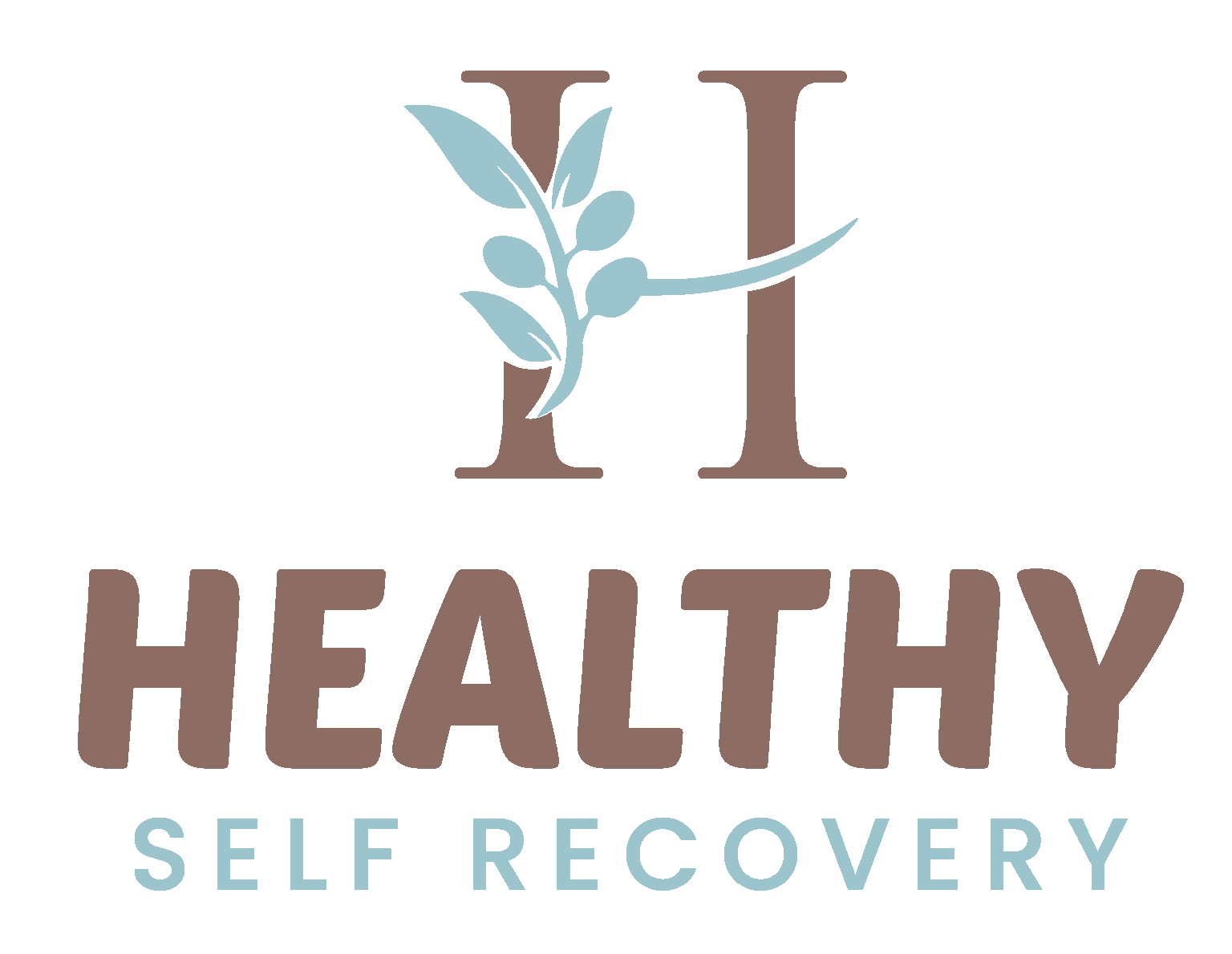The stereotypical image of an eating disorder in our society is that of a young, white, emaciated girl, and the association is that eating disorders are illnesses that primarily affect adolescents and young adults. However, this trope overlooks the reality that many women continue to grapple with disordered eating well into their 40s, 50s, and beyond. Indeed, that middle age may be the trigger that starts a cascade of disordered eating. Middle age brings women a unique set of challenges, including hormonal shifts, fluctuating body images, changing life circumstances, and the persistent influence of diet culture.
For some women, engaging in disordered eating may feel like a lifeline. A way of dealing with the stress and challenges that they are facing. Offering a sense of order and control over circumstances that seem to be changing forever. Embarking on recovery in midlife requires a safe and compassionate space to unpack what may be decades of disordered thoughts and beliefs around body and food. Recovery happens when support is attuned to building self-acceptance and self-worth and a sense of meaning beyond the physical body. This is where eating disorder recovery coaching can come in and offer support tailored specifically for women in this stage of their life.

Understanding Eating Disorders Beyond Youth
Eating disorders are complex illnesses, and there is no one cause but rather, they stem from various sources, including a genetic predisposition, societal pressures, trauma, and personal struggles. For many women, the changes that arise in midlife with ageing and a changing body are difficult to align with societal pressures to stay thin and the cultural obsession with youth. This can exacerbate or reawaken unhealthy relationships with food. Midlife is also a time of significant life change for women. Such as divorce, an empty nest, ageing parents or loss of a parent, and career changes. All of which can trigger feelings of a lack of control or a sense of inadequacy, which can lead to disordered eating.
Addressing disordered eating is not just about willpower and “pulling yourself together“. It is rarely something that can be undertaken on one’s own. Recovery from disordered eating requires understanding, compassion, support, and accountability. This is where an eating disorder recovery coach can be of great help.
The Role of Eating Disorder Recovery Coaches
Eating disorder recovery coaches, such as myself, are trained to provide guidance, encouragement, and accountability. Unlike traditional therapy, which may focus on the underlying reason for an eating disorder, coaching is focused on practical strategies and emotional support that address the specific thoughts, beliefs, and behaviours that maintain disordered eating on a day-to-day basis.
Here are a few ways recovery coaches can assist women in midlife:
Bespoke Approach
Women in midlife face a completely different set of challenges to someone in their twenties and recovery requires working with someone who recognises and understands this. Unlike women in their teens or early twenties who may be dealing with issues related to their education or starting a career, living with their parents, dating, or starting a relationship, women in midlife are often juggling many hats and a complicated mix of responsibilities. This often looks like marriage and /or divorce, the trials and responsibility of bringing up children, juggling home responsibilities with a job, ageing parents or the death of a parent, children leaving home, and so much more.
To top this all, they have to contend with fluctuating hormones and the physical and emotional effects of this on their identity. Working with a coach like myself who recovered from an eating disorder in my 40s can be very motivating and inspiring for women of a similar age. I know personally what it is like to break free from decades of ingrained behaviours and beliefs and how resilient you must be to build a new relationship with food and your body amidst the demands of adult life.
Managing Hormonal Changes
Perimenopause and menopause bring significant hormonal changes that can affect a woman’s relationship with food and her body. As estrogen and progesterone levels fluctuate and decline, it is common to have issues with low mood, sleep disturbances, increased anxiety, a slowed metabolism, and weight changes. Faced with a body that suddenly seems unfamiliar and noncompliant, many women turn or return to restrictive eating, calorie counting, excessive exercise, or bingeing and purging as a way of trying to regain a sense of control over their bodies and a sense of stability in their lives.
Hormones also play a part in a shift in body weight distribution and changes in shape, all of which can contribute to existing or new body image struggles. As I mentioned before, society’s pervasive obsession with anti-ageing and unrealistic body ideals can really contribute to this poor body image and low self-worth. A recovery coach can offer a safe, nonjudgemental, and compassionate space to work through the complicated and difficult feelings that arise around changing body image. A coach will help reframe negative self-talk as well as help reframe negative thought patterns
Additionally, a coach will work collaboratively to set realistic, achievable goals related to readdressing disordered relationships with food and movement. Working with a coach is about having a supportive partnership that will help to build a more neutral and respectful relationship with their bodies and replace disordered eating behaviours with healthy, lasting coping skills.
Working with a recovery coach who understands the unique pressures and challenges of perimenopause and menopause can be pivotal in helping to handle these changes with more self-awareness, self-compassion, and resilience.
Challenging Diet Culture
By the time a woman reaches midlife, they have had decades of dealing with toxic diet culture messaging that equates thinness with worth and health. Unfortunately this does not stop in middle age but rather can feel to increase with a huge societal pressure on women to remain slim and youthful looking even while the natural ageing process occurs. Many women struggle with poor body image and low self-worth as hormone changes affect their metabolism and have an effect on weight.
The beauty industry also weighs in hard on women of this age, marketing creams, pills, and procedures that promise to turn back the clock. This pervasive narrative that a woman’s worth is linked to her ability to remain small and forever youthful-looking can trigger yo-yo dieting and disordered eating. This is particularly so if someone has had a history of having a fractured relationship with food. Working with a recovery coach can be pivotal in helping women to realise that these narrow societal expectations are not only completely unrealistic but also fail to take into account the natural changes that occur to a woman’s shape across different life stages.

Building Connection
The media has only recently started talking about perimenopause and menopause. For some people, the experience is still confusing and one that still has a lot of shame talking about. Working with a coach who is walking in your shoes can provide a lot of solace and also be a source of strength as your experience is truly understood and validated.
Building Lifelong Skills
Recovery is not just about stopping disordered behaviors; it’s about building resilience, self-awareness, and self-compassion that ensure recovery is lasting and that there is no room to turn back to limiting coping skills. As women enter midlife it’s important that the coping skills they have are ones that will serve them as life continues to change and as the natural ageing process occurs. The most effective coping skills are ones that are versatile and transferable to different situations. An eating disorder recovery coach will work to help build a variety of skills ranging from challenging and reframing negative self-talk, regulating emotions, having a regular self-care practice, setting boundaries, communicating effectively and assertively, and many more, which build the foundations for lasting recovery.
Reclaiming Self Worth
Recovering from an eating disorder in middle age is a brave and courageous act of self worth. After years or decades of struggling with disordered eating, making the decision to change and heal is a powerful one. Working with a recovery coach is pivotal because in our appearance-obsessed society, recovery can sometimes feel like you are swimming against the incoming tide. This is because recovery involves challenging societal norms and diet culture and the pervasive messaging that equates thinness with worth, success, health, and moral virtue. It’s about learning that these external standards are unrealistic, unattainable, and arbitrary and that their only role is to fuel dieting, restriction, bingeing, shame, and low self-worth.
An eating disorder recovery coach will help you to shut out external noise and reconnect to your own internal values. Through readdressing food and food behaviours and learning to nourish your body adequately and regularly coaching will help you to reconnect with your body’s intrinsic hunger and fullness cues and to rebuild body trust.
Accepting a New Normal
Bodies age and change, particularly in middle age, and coaching can be of enormous benefit in helping to accept these changes with grace and self-compassion. Rather than fighting and punishing your body or pining for what you used to look like, coaching will help you to appreciate your body for all it has done and does for you and all the amazing things it is still capable of. Recovery and coaching help you recognize that your worth goes beyond a number on a scale or a dress size. Your appearance is the least interesting thing about you—who you are and what you bring to the world truly matter. Accepting your body and age ultimately frees up space and moves the focus onto the things that are truly important to you, and that means you live a full life.
Embracing Recovery at Any Age
Eating disorders are complex illnesses that can affect women of all ages, not just adolescents or young adults. Midlife or middle age is a time of immense change for women which can be very destabilising. However, it can also be a time of great personal growth and self-discovery. If you or someone you know is struggling with disordered eating in midlife, please know that there is no shame in this, no matter what age or stage of life you are at.
Eating disorders are destructive illnesses, and rarely does someone recover on their own, so do consider reaching out to a qualified eating disorder recovery coach. Whilst reaching full recovery from an eating disorder is never an easy journey, we need to change the narrative and recognize that not only is it never too late to start the journey but that with support and hard work, recovery and self-acceptance are possible at any age.
Struggling with an eating disorder can feel overwhelming and terribly lonely, however, you don’t need to face this alone. An eating disorder recovery coach can provide the support, accountability, and motivation that you need to change your relationship with food and your body. Don’t wait any longer – you are worthy of recovery and a fuller, happier life. Reach out today!

Reclaim Your Well-Being with Eating Disorder Recovery Coaching in the UK and Online Globally
Struggling with disordered eating in midlife can feel isolating, but you don’t have to navigate it alone. At Healthy Self Recovery, our eating disorder recovery coaching is designed specifically for women in midlife, offering compassionate support, guidance, and practical strategies to help you build a healthier relationship with food and your body. Take the first step toward healing—reach out today and start your journey toward lasting recovery. Follow these three simple steps to get started:
- Contact me to schedule a free discovery call to see if Eating Disorder Recovery Coaching is right for you.
- Begin meeting with me, Marianna Miles, an British eating disorder recovery coach
- Start navigating eating disorders in positive ways!
Additional Services Offered at Healthy Self-Recovery
At Healthy Self Recovery, I offer dedicated guidance for eating disorder recovery, providing personalized support tailored to your unique needs. Through a combination of encouragement and practical tools, I help you work through the emotional and behavioral challenges of healing. My eating disorder recovery coaching sessions are designed to reduce food-related anxieties, offering compassionate meal support in a safe, judgment-free space. With ongoing text support, you’ll feel motivated and reassured throughout your journey. I also collaborate with your medical team to ensure a well-rounded, holistic recovery approach. Together, we’ll build a path toward healing, self-confidence, and a balanced relationship with food. My services are available across the UK, including England, Scotland, and Ireland, with online coaching accessible globally.








